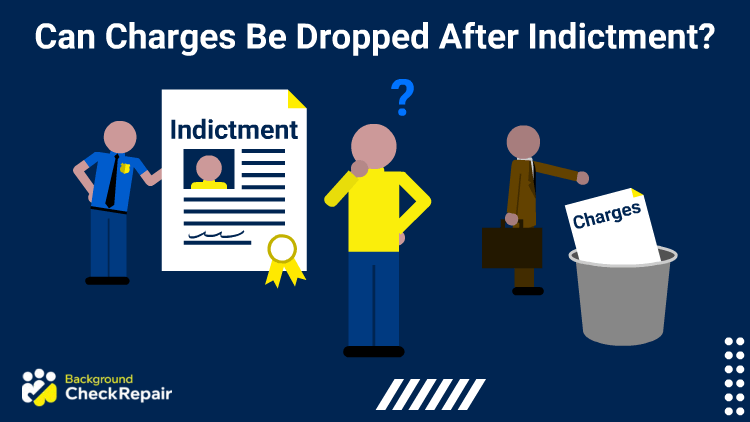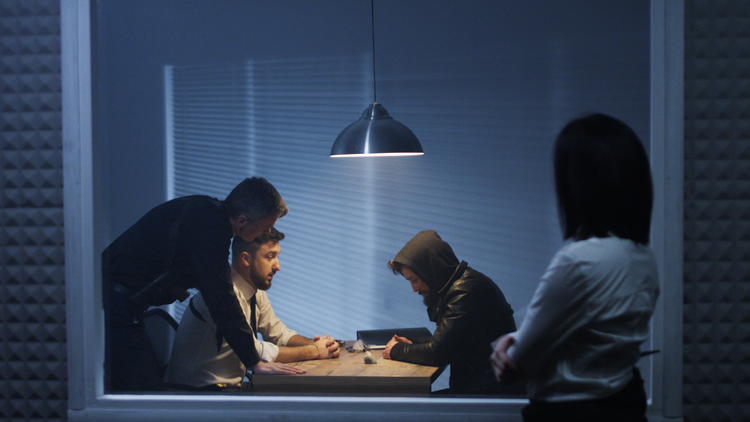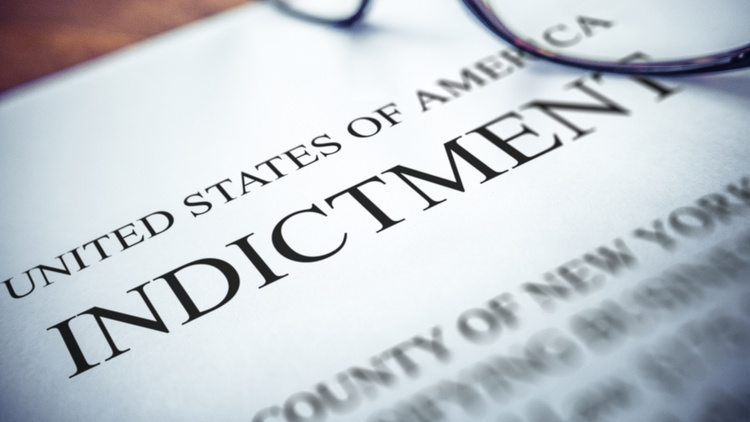
Individuals who have been charged with a crime often wonder can charges be dropped after indictment?
For this answer, there’s good news, and bad news.
Although the answer depends on factors like the circumstances of the charges and the state where the charges were brought, it’s not always a one-size-fits-all answer.
The good news is that it is entirely possible for charges to be dropped after an indictment, however if a person’s main concern is how the charges will impact a future background check, there’s a strong possibility that this will still show up on most criminal history checks. This is because of the way the legal system works.
But, anyone can skip the questions and get a criminal background check report for free on themselves to find out the details that appear on their background report, and if dismissed charges against them appear on a background check?
How Can Charges Be Dropped? The Difference Between Charged Vs Indicted
The US court system1 is notoriously complex and figuring out if your specific charges can be dropped can be a tricky thing to figure out. Factors like the state or even county that the charges were filed in could have an impact on your chances, as well the stage in the legal process.

The first source of confusion for many individuals is the distinction between being charged for a crime and being indicted for a crime. The difference depends entirely on who filed the charges.
For many crimes, law enforcement may have caught the individual in the act of committing the crime. If this is the case the law enforcement officers will present the circumstances and evidence to the prosecutor who will then file charges against the individual for the crime. This is the basic process for when an individual gets charged with a crime.
However, criminal cases aren’t always so simple. In many cases there may be evidence that a crime took place and that a particular individual committed it, such as physical evidence or witness statements. In this case, law enforcement can’t simply arrest an individual and file charges against them. Instead the law enforcement officers will present the evidence to the prosecutor who will then present the evidence to a grand jury.
A grand jury is similar to a trial jury and is generally made up of citizens. However, while a trial jury will decide on someone’s guilt, a grand jury only decides if there is evidence that suggests a crime took place.
Should a grand jury choose to indict an individual based on evidence presented by the prosecutor, then the individual will be arrested and the criminal proceedings will begin as normal.
Regardless of whether the individual was charged or indicted, in many ways the end result is the same, an individual is formally accused of a crime by the courts. There are some minor details that will vary based on jurisdiction, however this is the general process when it comes to charging or indicting an individual.
So, can charges be dropped after indictment? Absolutely, whether or not a case can be dropped has nothing to do with whether or not the individual was charged or indicted. If new evidence comes to light that points to the fact that the individual was nowhere near the scene of the alleged crime, then the charges would likely be dropped. There are tons of different ways that charges can be dropped after an indictment.
Some of the most common are listed below.
Can Charges Be Dropped After Indictment Due to Evidence Problems?
Issues involving evidence are probably the most common reason for charges to be dropped.
Evidence that has been tampered with, falsified or is simply not strong enough to tie an individual to a particular crime are all common reasons for charges to get dropped.
Sometimes new evidence will be found that will help to prove that it is unlikely the individual was involved with the crime, such as an alibi.
Issues With the Arrest or Investigation
There are extensive laws in the United States aimed to protect the rights of citizens. If any of these basic rights were violated as part of the arrest of the individual or the investigation that led to the arrest, then the charges can be dropped.

This doesn’t always have to be extreme and can even involve things like law enforcement failing to explain the rights of the accused during the arrest, or an unlawful search that led to an arrest.
Resources
Just as not every crime carries the same punishment, prosecutors and other legal staff don’t prioritize every case the same. If a minor crime was committed, it’s possible the charges will be dropped because the prosecution simply doesn’t believe it is worth the time and resources to seek a conviction. Obviously, more serious crimes will always be pursued but it is possible to simply luck out when a minor criminal offense has been committed.
Cooperation With Law Enforcement
In many situations, cooperating with law enforcement can be a way to get charges dropped. Certain crimes may not be of much importance to law enforcement, but if the individual can give information that leads to the arrest of someone involved in more serious crimes, investigators may be able to work out a deal in which the charges will be dropped in exchange for information. This is another situation where having proper legal counsel is important as an attorney can help facilitate the deal and ensure that both ends of the deal are held up.
Can Charges Be Dropped After an Indictment?
Many people are wondering can charges be dropped after indictment? Are mainly concerned with how their record will be affected. Unfortunately, most criminal history searches that are performed as part of a pre-employment background check will show charges and indictments. Having an indictment on your record is rarely a disqualifying offense for many jobs.

This is a great example why it is always a good idea to perform a background check on yourself before applying for a job. This way, individuals can know what to expect and in the case of having charges or an indictment on their record, can have a response prepared in case the hiring manager has questions about their criminal history findings.
Can Charges Be Dropped After Grand Jury Indictment?
Regardless of how the charges were brought, they can almost always be dropped, whether it was a grand jury indictment or charges brought by a prosecutor. Any evidence that is brought up that can easily prove an individuals lack of involvement in a crime is cause for charges to be dropped, regardless of the stage in the legal trial.
Can Federal Charges Be Dropped After an Indictment?
Can charges be dropped after indictment if they were federal charges? Federal charges2 can be dropped the same as local charges. However, for many crimes, the prosecutor may not even bring charges until there is sufficient evidence of involvement in a crime. Although not impossible to get charges dropped in this situation, law enforcement will generally not bother bringing charges that will get dropped soon after.
Can Charges Be Dropped After Sentencing?
It is possible for charges to be dropped after sentencing. This is usually referred to as an appeal and there are several different reasons for an appeal to result in overturning the results of a trial. Often it will involve new evidence coming to light, but can also happen for reasons such as an unfair trial or something similar.
Can Dropped Charges Be Reinstated?
Yes, just as charges can be dropped as a result of new evidence coming to light they can be reinstated for the same reason. This isn’t a common occurrence but does happen, especially in more complex cases where law enforcement may be gathering evidence for months or even years at a time.
What Happens If Charges Are Dropped Before Court?
If charges are dropped before court then the trial simply will not proceed. With no charges there is no case and thus there is no need for a trial to occur.
Oftentimes, some charges will be dropped before trial but not all. In this case the trial will proceed but only regarding the charges that are still standing.
Once Charges Are Dropped Can They Be Reopened?
Yes, dropped charges can be reopened if new evidence comes to light that points to an individual being involved with a crime. Law enforcement tend to only file charges when they are confident of a conviction, so if a charge was dropped and then reopened, it is extremely unlikely that it will be possible to get the charge dropped again.
Can Charges Be Dropped After Arraignment?
It is possible for charges to be dropped after an arraignment hearing. Although rare, it is entirely possible in most states for a judge to decide to drop the charges upon seeing evidence or the nature of the crime.
How Can Charges Be Dropped Before Trial? (All 50 States)
The exact legal situation that allows for charges to be dropped before a trial takes place depends on the state. Each state has slightly different circumstances that must be met in order for charges to be dropped. Use the list below to understand the exact criminal procedure involving dropping charges in each state.
Getting charged with a crime can be scary and something that affects you for the rest of your life. Luckily, not all is lost and being able to answer questions like: “Can charges be dropped after indictment” will help individuals through the legal process.
Frequently Asked Questions About Can Charges Be Dropped After Indictment





